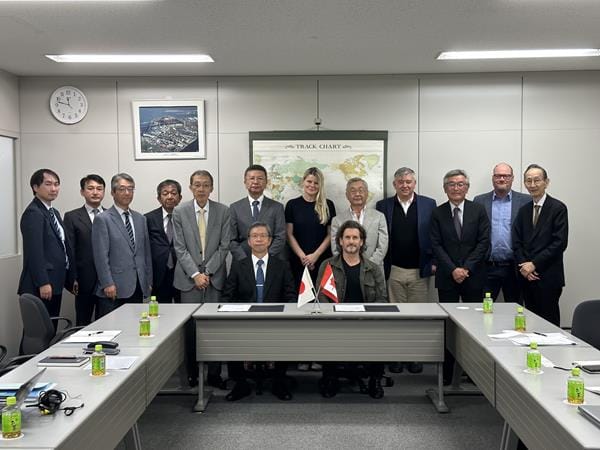The Metals Company to justify processing seabed nodules in Japan in exemption request to US authorities
The Metals Company must recalibrate long term processing plans to align with America's strategic priorities, but how does that affect its commitments to the Japanese?

The Metals Company, TMC, says it is receiving strong interest for potential partnership to develop refinery capacity for poly-metallic nodules on American soil, as it grapples with new expectations to conduct onshore processing within the United States.
CEO Gerard Barron told investors at an earnings call on Wednesday this week that there was "lots of inbound" interest from what he termed "patriot capital" - investors who wish to develop on-the-ground industrial capacity.
The Japanese agreement
Prior to its US application, TMC was already developing a partnership with a Japanese firm, PAMCO, to process the poly-metallic nodules it hopes to collect from the Pacific Ocean.
PAMCO did a processing test for the seabed minerals earlier this year using the 3000 tonnes of nodules harvested during a test collection. The successful processing test was hailed as great news for TMC, who needed to demonstrate it can convert the nodules into useful metals at a financially viable rate.
But the US administration wants processing jobs on the ground in America, as part of its re-industrialisation strategy. It also considers control of its nascent minerals supply chain a national security concern, and has classified the need for domestic supply as a national emergency.
The US reliance on China for critical minerals used for defence manufacturing, aeronautics and renewable technologies, as we discussed in this piece, is seen as an urgent security threat and the Department of Defence has been granted powers to expedite the development of a domestic supply chain through grants, funding, and the identification of suitable lands.
Processing exemption from the United States
TMC says it has the option to apply for an exemption to process the seabed minerals outside the United States initially, but must prove that this is required for "the economic viability of the project".
To get the exemption, the company must also offer "reasonable assurances that processed materials will be returned to the United States".
Managing this expectation is partly why TMC has had to delay the release of its pre-feasibility study which has now been promised for release by end of September.
Strategic setback for TMC
The need to refine in America requires a strategic recalibration by TMC who had been employing a "capital light" approach, where existing resources would be used as much as possible. The PAMCO partnership, signed in 2023, would eliminate the need to build new infrastructure from scratch.
TMC’s Head of Onshore Development, Dr Jeffrey Donald, had noted earlier this year that PAMCO's "deep expertise" would "save years in development time and billions in CAPEX (capital expenditure)".
TMC's deal with the Japanese firm also included a clause which said the parties would enter into good faith negotiations to finalise definitive processing agreements on completion of the tests.
It is not clear how, if any, the US requirements over the medium to longer term will clash with this agreement.

Read:
Deep Blue League's first three reports on The Metals Company's Corporate Update Call this week:
- The Metals Company fully abandons plan for deep sea mining licence at International Seabed Authority
- TMC promises to release pre-feasibility study in third quarter of 2025
- TMC reports enough funds to get through pioneering permitting process
TMC's Q1 presentation to investors
For editorial comments or questions: [email protected]

